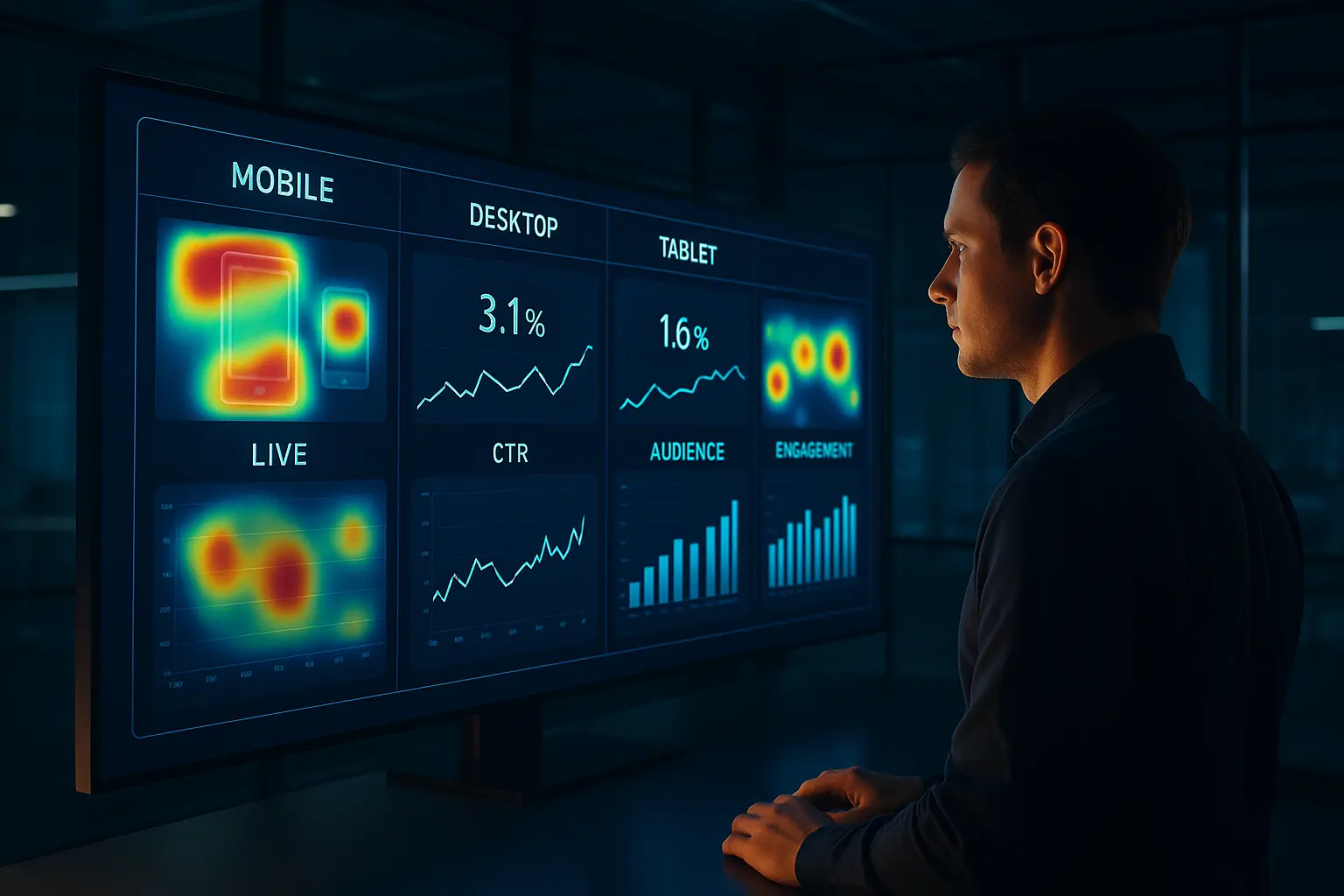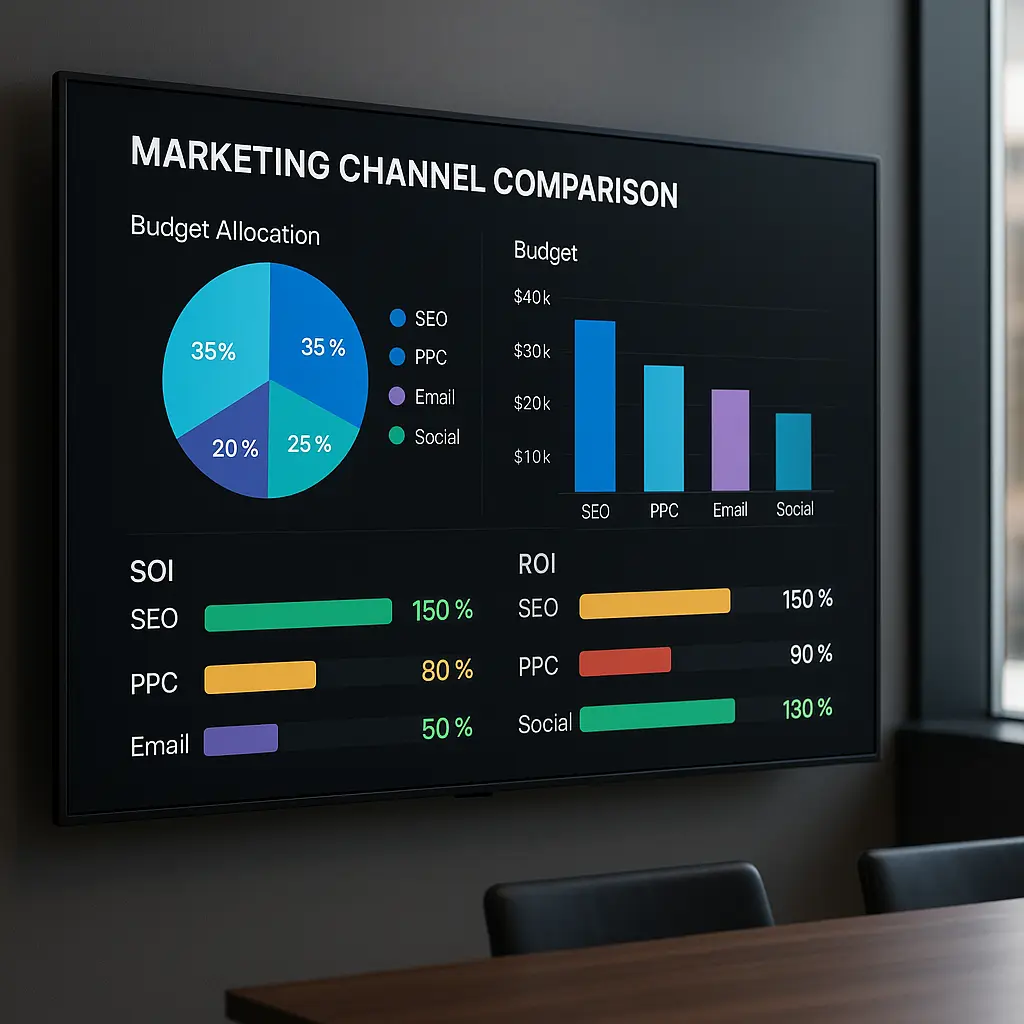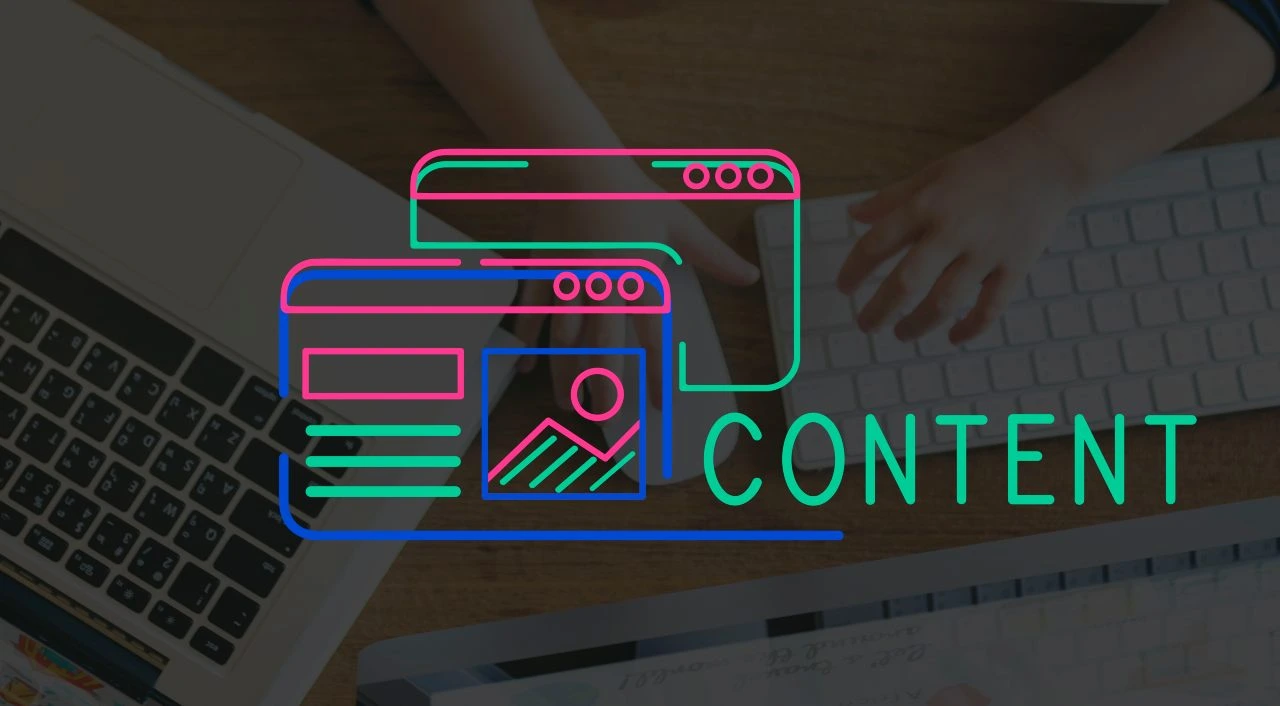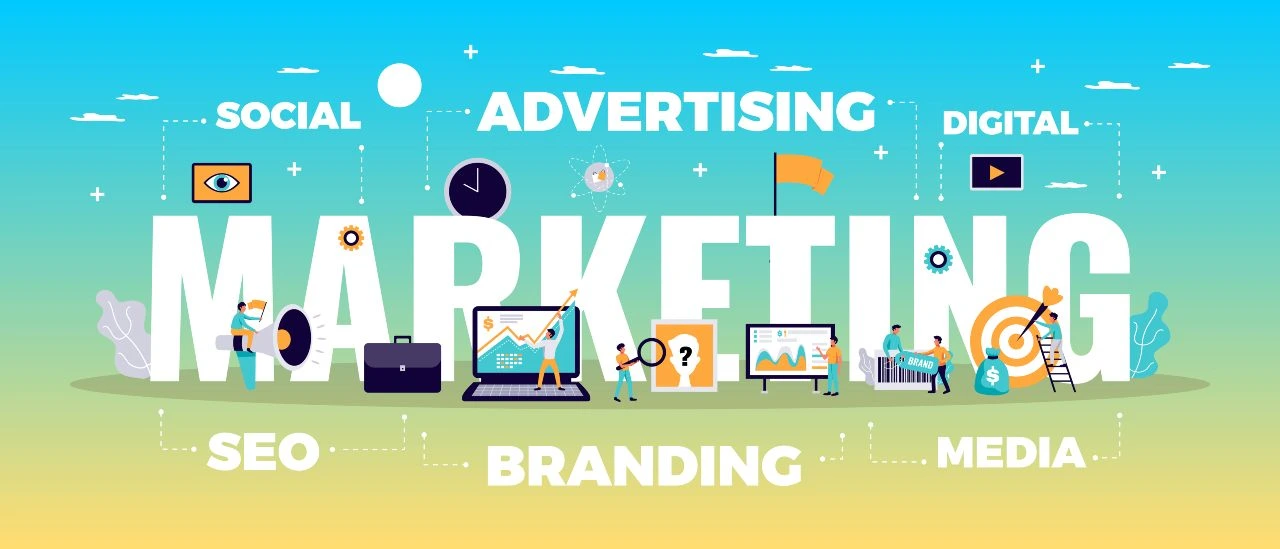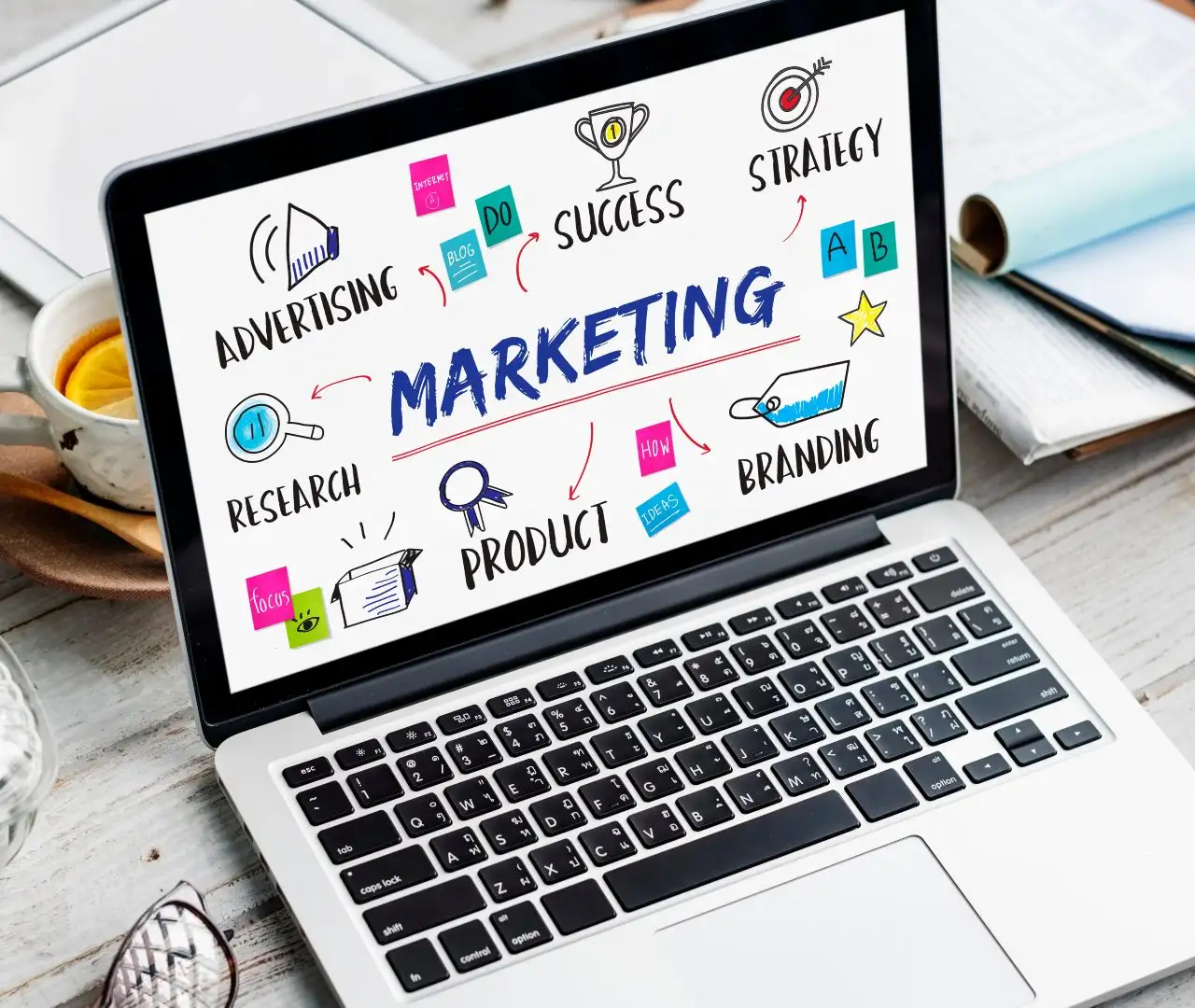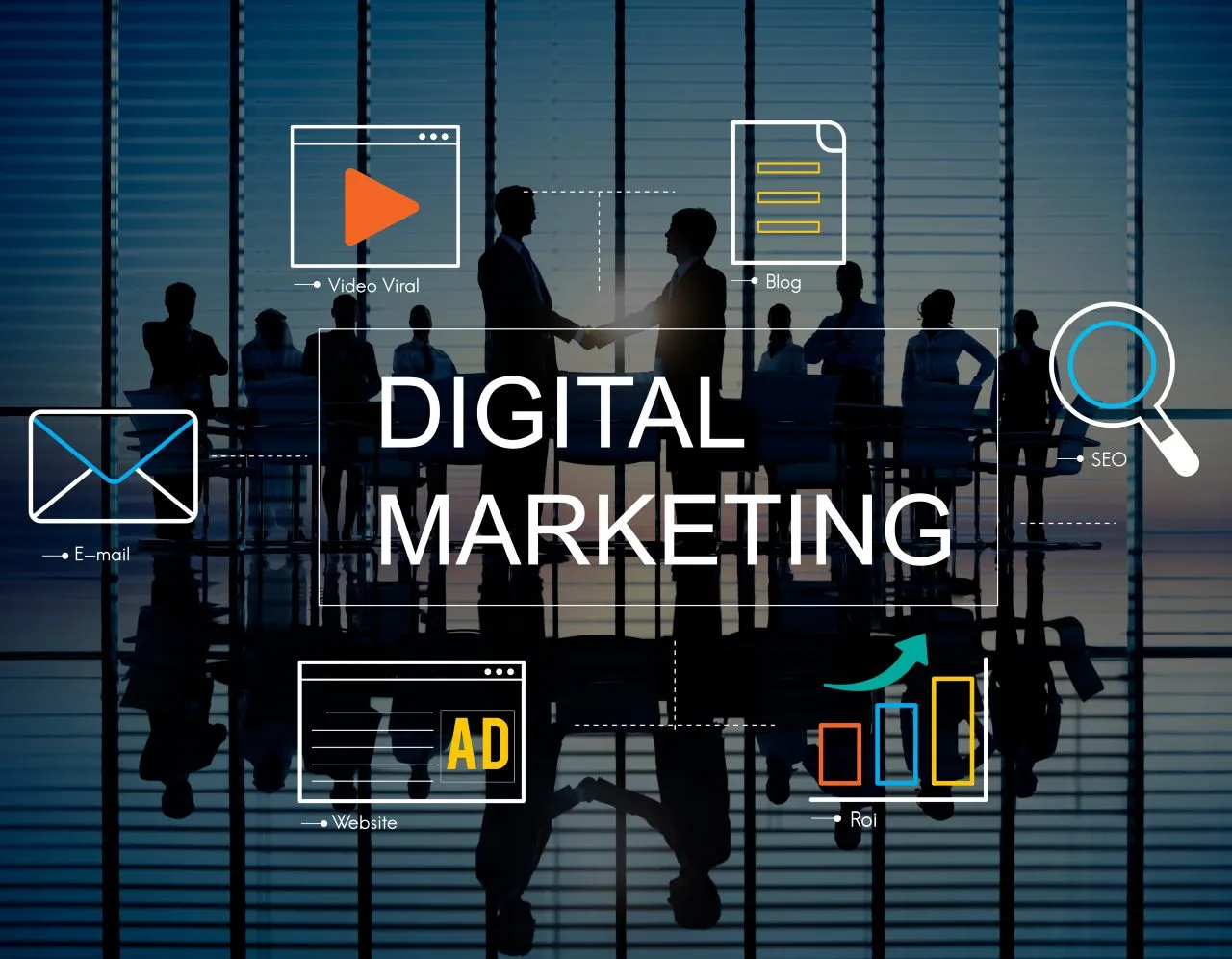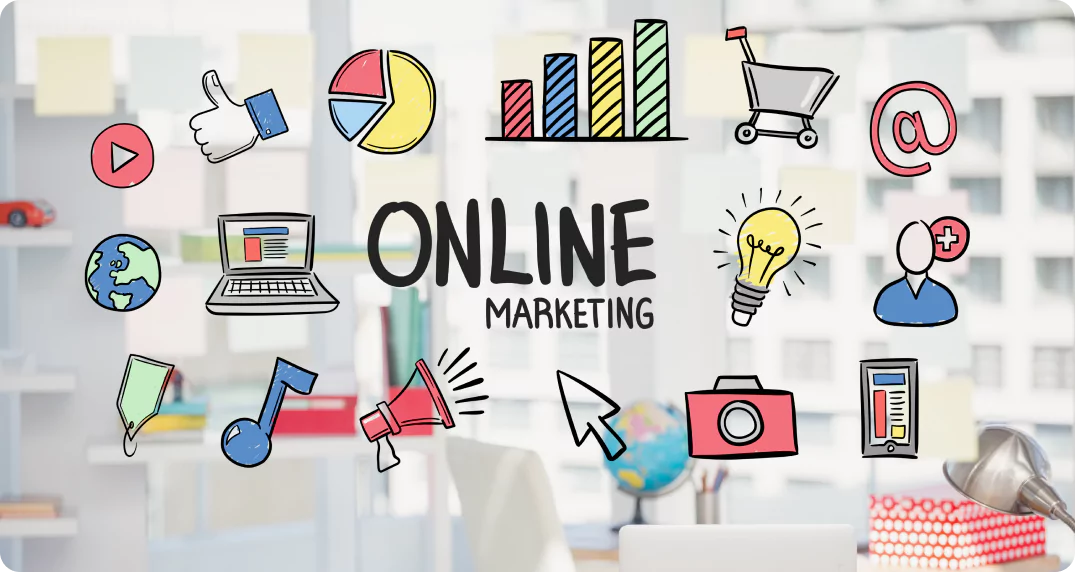Listen to article
In the fast-paced world of B2B marketing, search engine optimization (SEO) isn’t just a tactic—it’s a necessity. But how do B2B companies truly excel in SEO? The answer lies in understanding the latest industry-specific data and insights.
With search algorithms constantly evolving, staying informed about current trends and benchmarks is critical for developing effective SEO strategies. Did you know, for example, that 67% of small businesses are already using AI to enhance their content marketing and SEO efforts?
In this article, we’ll explore essential B2B SEO statistics, providing a comprehensive overview of what drives success in today’s competitive digital landscape. We’ll cover everything from content marketing performance and AI implementation to budget allocation and social media strategies, offering actionable insights to help you optimize your SEO efforts and achieve measurable results.
Balancing AI Integration and Content Quality in B2B Marketing
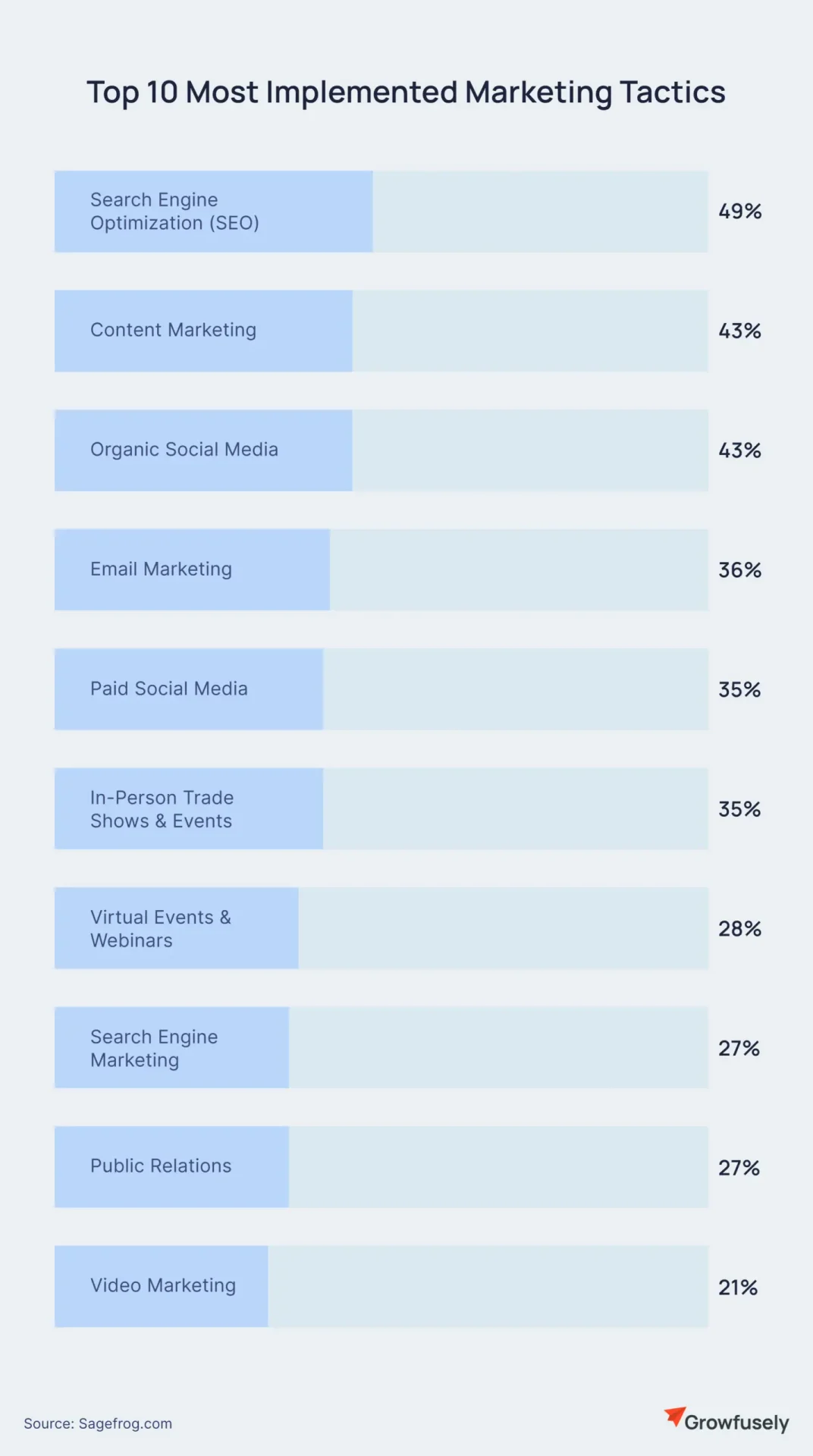
Source: SeoProfy
The rise of AI in content creation has opened new doors for efficiency and scalability in B2B marketing. However, not all marketers are fully convinced of its ability to match human creativity and nuance. Striking the right balance between leveraging AI’s potential and maintaining high-quality, trustworthy content remains a key challenge—and opportunity—for modern B2B marketers.
- Only 17% of B2B marketers describe AI-generated content as “excellent” or “very good,” while 44% label it as “good,” and 35% consider it “fair.” Source
- A notable 67% of marketers admit to a “medium level of trust” in AI-generated content, whereas 28% report “low trust,” reflecting concerns about AI’s consistency and accuracy. Source
- Just 4% of marketers display a high level of trust in AI output, highlighting the necessity of close oversight to improve the reliability of AI-powered strategies. Source
Key Takeaway
B2B marketers are cautiously optimistic about the role of AI in streamlining content creation and improving SEO strategies, yet trust issues remain a barrier to widespread adoption. The data underscores an important lesson: AI, while powerful, is not a silver bullet. Successful marketers use AI to enhance processes but still rely on human expertise to fine-tune content for audience relevance and brand consistency.
Pro Tip:
Rather than using AI to fully replace traditional content creation, treat it as a co-pilot that accelerates ideation, enhances data analysis, and drives efficiencies. Invest in tools that integrate seamlessly with your editorial workflow and implement a robust review process to ensure every AI-generated asset meets your quality standards before publication.
How AI is Reshaping B2B Content and SEO: Trends, Opportunities, and Challenges
AI is no longer a futuristic concept—it’s a driving force behind how B2B companies create content, optimize for search, and streamline operations. By automating repetitive tasks and uncovering new opportunities for creativity and efficiency, AI is transforming how marketers approach SEO and content strategies. However, the road to full integration is still uneven, with many organizations navigating experimentation, ad hoc use, and ethical concerns as they strive to unlock AI’s full potential.
- A remarkable 81% of B2B marketing teams are now using generative AI tools, up from 72% the previous year. Source
- Only 19% of B2B marketers report full AI integration into their daily workflows, signaling untapped opportunities for seamless adoption. Source
- Over half (54%) of teams use AI on an ad hoc basis, while 27% allow informal use by individuals without a formalized strategy. Source
- The percentage of organizations without AI usage guidelines has dropped from 61% to 45% year-over-year, reflecting a growing focus on responsible AI practices. Source
- AI eases workloads for marketers: 70% of marketers say AI tools simplify their jobs. Source
- Content creation gets a boost: 29% of B2B marketers use AI for content creation, making it a crucial part of modern strategies. Source
- Small businesses embrace AI too: 67% of small businesses are leveraging AI to optimize content marketing strategies and SEO. Source
- Streamlined workflows: 51% of marketers report reduced tedious tasks, while 45% experience more efficient workflows thanks to AI. Source
- Enhanced creativity and optimization: AI drives improved content optimization for 42% of marketers and boosts creativity for 38%. Source
- Businesses using AI tools report a 68% increase in ROI from content marketing efforts, demonstrating AI’s ability to drive measurable impact. Source
- 78% of marketers using AI focus on acceptable, ethical use cases, prioritizing professional standards in application. Source
- Security and ethical boundaries remain a top priority, with 66% of marketers emphasizing data security while another 66% focus on defining unacceptable AI use. Source
Key Takeaway
The impact of AI on B2B content and SEO is undeniable, offering a unique combination of efficiency, creativity, and ROI improvements. However, the leap from sporadic experimentation to strategic integration remains a challenge for many organizations. To maximize the potential of AI, companies must view it as an enabler rather than a standalone solution. The future of AI in B2B marketing lies in crafting a balance—embracing automation while maintaining a focus on ethical practices, personalized messaging, and delivering real value to audiences.
Pro Tip:
Start small with AI adoption by identifying specific pain points, such as content optimization or repetitive administrative tasks. Then, document clear usage guidelines, including ethical parameters and data security measures, to ensure AI enhances—not complicates—your marketing operations. Regularly evaluate and refine your AI strategy to align with not only technological advancements but also your broader business goals.
B2B Content Marketing: Strategies and Data-Driven Insights
Achieving success in B2B content marketing requires more than just publishing good content—it’s about strategically aligning every piece of content with your audience’s needs and leveraging the right channels for maximum reach. With decision-makers expecting tailored insights and measurable outcomes, the B2B space demands a deep blend of strategy, creativity, and analytics. By understanding what separates high-performing campaigns from lackluster efforts, businesses can create content that not only captures attention but drives tangible results.
- Overall Success Rates: Only 22% of B2B marketers rate their content marketing efforts as “extremely” or “very successful,” while 54% cite moderate success, and 21% report minimal or no success. Source
- Understanding the Audience: A whopping 82% of top-performing B2B content marketers prioritize understanding their audience as their key driver of success. Source
- High-Quality Content: 77% of successful B2B marketers attribute their success to consistently creating high-quality content. Source
- Industry Expertise: 70% of top performers highlight specialized industry knowledge as central to their success. Source
- Measuring Content Performance: 53% of high-performing marketers stress the importance of measuring and demonstrating content performance. Source
- Documented Strategy: 47% of successful B2B content marketers maintain a clearly documented content strategy. Source
- Content Marketing Goals: Top goals for B2B content marketing include generating demand/leads, nurturing audiences, fostering loyalty, and driving revenue. Source
- Content Marketing Adoption: 91% of B2B marketers integrate content marketing into their overall strategy. Source
- Documented vs. Undocumented Strategies: 37% of B2B marketers work from a documented content strategy, while 38% operate without formal documentation. Source
- Impact of Documentation: 62% of successful B2B organizations credit their achievements to having a well-documented content strategy. Source
- AI Adoption in Small Businesses: 67% of small businesses are utilizing AI to optimize content marketing and SEO strategies. Source
- Email Marketing with Video: Adding video to email campaigns can increase click-through rates by 2-3 times, making it a powerful engagement tool. Source
- LinkedIn’s Dominance: LinkedIn remains the top platform for B2B content distribution and the most effective for securing high-quality leads. Source
- Popular Content Formats: Short articles or posts (94%), videos, and case studies are the most favored content formats for driving engagement. Source
Key Takeaway
The data highlights a clear trend: success in B2B content marketing stems from a strategic, audience-centric approach rather than simply increasing output. Organizations that excel focus on understanding their audience deeply, leveraging measurable content performance, and documenting their strategies to ensure consistency and alignment. Today, tools such as AI are revolutionizing how small businesses scale their content production, while platforms like LinkedIn remain indispensable for reaching decision-makers effectively.
To thrive in this competitive landscape, businesses need to prioritize quality over quantity, balance creativity with data-driven insights, and continuously adapt their distribution strategies to evolving audience behaviors.
Pro Tip:
Don’t underestimate the power of documenting your content strategy—not only to streamline processes but to ensure every campaign ties back to your broader business objectives. Additionally, experiment with integrating tools like AI to automate repetitive tasks and enhance content personalization. Focus on creating a mix of formats, from quick-read articles to in-depth videos and case studies, and hone in on where your target audience is most active—whether that’s LinkedIn or another channel. For a holistic approach to your digital presence, ensure that your B2B website strategy aligns with your content marketing goals to convert leads and maximize ROI. Let data guide your next move, and watch your engagement metrics soar!
B2B Blogging: A Cornerstone of SEO Success
Blogging remains a pivotal strategy for B2B marketers looking to enhance their SEO and overall online presence. High-quality, informative blog content not only attracts visitors but also establishes thought leadership and drives inbound links.
- Blogging has been identified as the most valuable form of content by 59% of B2B marketers. Source
- Companies that maintain a blog experience significant SEO benefits, including a 55% increase in website visitors, a 97% boost in inbound links, and a remarkable 434% increase in indexed pages. Source
- 53% of marketers prioritize blog content creation as their top inbound marketing initiative. Source
Key Takeaway
These statistics underscore the undeniable value of blogging in B2B marketing. By consistently creating valuable and optimized blog content, B2B companies—and the top B2B SEO agencies that support them—can significantly improve their SEO performance, avoid common seo mistakes, attract more visitors, and establish themselves as industry leaders.
Pro Tip:
Focus on creating in-depth, long-form content that addresses your audience’s specific pain points and provides actionable solutions.
Elevating B2B SEO Through High-Impact Content Formats
When it comes to crafting a winning SEO strategy, B2B marketers must focus on more than just keywords—they need to think strategically about the types of content that resonate most with decision-makers. It’s not just about attracting visitors but also keeping them engaged and nudging them toward conversions. Content like short-form articles, videos, and case studies doesn’t just help rank better on search engines—it builds trust and credibility in an increasingly competitive market.
- A striking 94% of B2B marketers rely on short articles or blog posts as their go-to format for driving engagement. Source
- Adding videos to B2B email campaigns boosts click-through rates by two to three times compared to emails without video. Source
Key Takeaway
The power of these formats lies not just in their ability to satisfy search engine algorithms but in how they connect with human audiences. Short-form articles offer quick, digestible insights, while videos provide a dynamic way to simplify complex information. Case studies, on the other hand, showcase real-world solutions, making them a persuasive tool for leads in the consideration stage.
Pro Tip:
Don’t let your content gather dust—repurpose it! A well-performing article can be transformed into a quick video or an attention-grabbing infographic. Similarly, case studies can inspire webinar topics or podcasts. The goal is to extend the life of your best content and meet your audience wherever they are in their buyer’s journey.
Crafting Compelling Content: Aligning with B2B Buyer Expectations
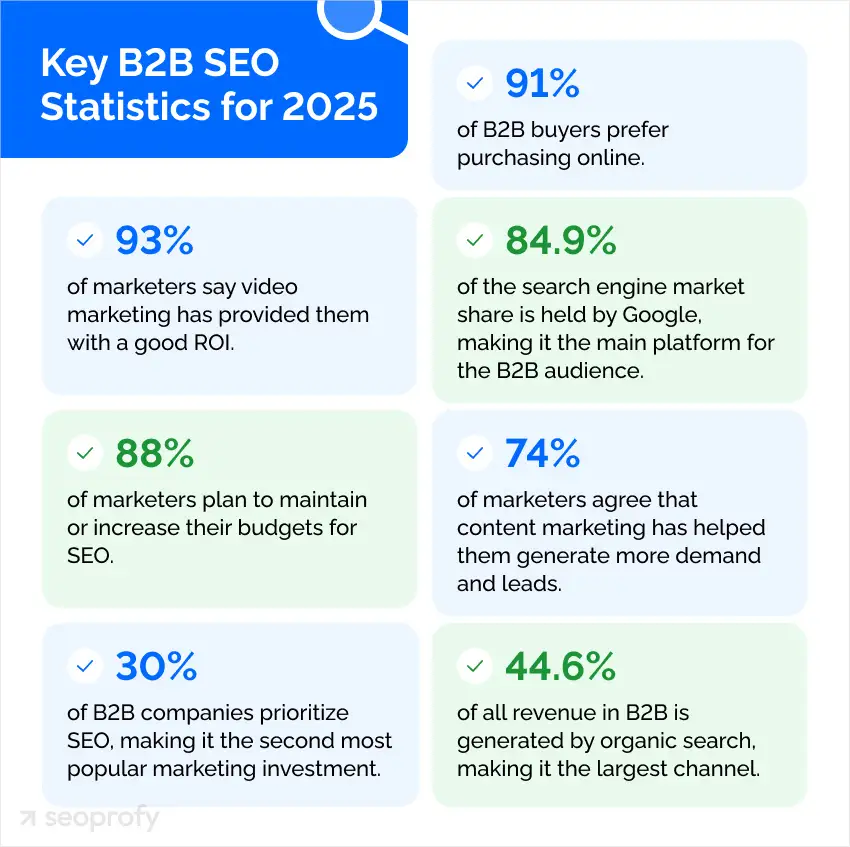
Source: Growfusely
In the competitive B2B landscape, success often depends on delivering the right content at the right time. Today’s B2B buyers are more deliberate and data-driven than ever before, consuming multiple pieces of content before reaching out to suppliers. This means your content must not only inform but also instill trust and confidence while guiding buyers through the decision-making process.
- B2B buyers consume an average of 4.5 pieces of content before contacting a supplier. Source
- Around 40% of B2B buyers need to engage with three to five pieces of content before reaching out to a seller. Source
- Case studies, surveys, and research reports are among the most effective content formats for influencing B2B buyers. Source
- Nearly 48% of B2B marketers say research reports yield the best results. Source
Key Takeaway
These insights highlight a critical truth: B2B buyers aren’t just looking for information; they’re searching for proof. Case studies, surveys, and research reports resonate because they don’t just tell a story—they back it up with evidence. As buying cycles grow more complex, maintaining a well-rounded content strategy that caters to different stages of the funnel is no longer optional; it’s a must. From awareness-building thought leadership to in-depth reports that aid in closing deals, having the right mix of content ensures that buyers have what they need to move forward confidently.
Pro Tip:
Elevate your content by incorporating actionable insights and real-world examples. To maximize impact, leverage interactive formats such as clickable surveys or visual case studies. These formats not only engage your audience more deeply but also reinforce your authority in their decision-making process. If your team lacks the capacity to create a diverse range of content or execute a comprehensive strategy, consider outsourcing SEO services to ensure your efforts are data-driven and effective.
Social Media in B2B Content Marketing
In the competitive landscape of B2B marketing, creating quality content is only half the battle—getting it in front of the right audience is what truly drives results. Social media platforms, when used strategically, offer unparalleled opportunities to amplify content reach and position your brand as a thought leader. But success lies in choosing the right channels and crafting content that resonates with your audience’s professional needs and challenges.
- 90% of bloggers rely on social media to promote their blogs. Source
- 92% of content marketers identify LinkedIn as the most effective platform for content promotion. Source
Key Takeaway
While many B2B companies already recognize the importance of social media in content distribution, the key differentiator lies in platform-specific strategies. For instance, LinkedIn’s professional focus makes it a hub for high-value conversations, making it ideal for promoting industry reports, thought leadership pieces, and webinars. By tailoring your approach to each platform’s audience and purpose, you can extend your reach, improve engagement, and drive tangible results for your business.
Pro Tip:
To maximize your impact on platforms like LinkedIn, focus on engaging content formats like carousel posts, interactive polls, and video. Additionally, encourage employees to share your content to tap into their networks and boost organic visibility. Social media isn’t just about promotion; when done right, it becomes a two-way channel for meaningful engagement and relationship-building.
Mastering Changing B2B Search Trends to Stay Competitive
The way people search is changing rapidly, and for B2B companies, aligning with these shifts is not optional—it’s essential for remaining relevant in an increasingly competitive space. With 15% of Google searches being completely new daily, the challenge for B2B marketers is more than just ranking for keywords; it’s about anticipating and answering questions even before they’re asked. This requires a deep understanding of search intent, user behavior, and leveraging data strategically to craft content that resonates and converts.
- A surprising 15% of all Google searches are brand-new queries, underscoring the importance of staying agile in SEO strategies. Source
- Successful SEO goes beyond search volume; keyword research needs to prioritize search intent to align with buyer journeys. Source
- 87% of top-performing marketers focus on addressing user needs and solving pain points, rather than pushing sales-driven messaging. Source
- Nearly 40% of marketers use keyword analysis to generate fresh content ideas, proving that data-driven strategies play a significant role in successful content creation. Source
Key Takeaway
In the B2B world, creating content that ranks is no longer just about chasing high-volume keywords. The real edge comes from understanding why people are searching and addressing their pain points with meaningful solutions. With an ever-growing proportion of unpredictable, never-before-searched queries, businesses must focus on adaptability, user-centric content strategies, and continuous data analysis to meet this evolving demand head-on.
Pro Tip:
Instead of focusing solely on broader keywords, use tools like SEMrush, Ahrefs, or Google’s “People Also Ask” feature to uncover long-tail, intent-driven phrases. Pair this with customer interviews or survey data to identify the real questions and challenges your prospects are facing—and then tailor your content to answer them.
Strategic Investments: How B2B Marketers Are Prioritizing Budgets for Maximum Impact
In the B2B landscape, staying ahead requires more than just following trends—it demands a deliberate and data-driven approach to budget allocation. As competition grows fiercer and buyer behavior becomes more complex, marketers are zeroing in on high-impact strategies like brand building, social media management, paid search, and email marketing services. These aren’t just buzzwords; they’re proven areas of investment driving measurable results and long-term growth.
- 67% of B2B marketers are ramping up their budgets for brand-building initiatives. Source
- 56% of B2B marketers are increasing their spending on social media platforms to reach and engage their audiences. Source
- 40% of marketers are dedicating more resources to paid search campaigns, tapping into precise targeting opportunities for lead generation. Source
- Another 40% of B2B marketers are boosting budgets for email marketing, focusing on personalized and automated touchpoints. Source
Key Takeaway
The numbers don’t lie: B2B marketers are embracing a multifaceted approach to ensure they connect with decision-makers at every stage of the buying journey. By pairing brand-building efforts with data-driven tactics like paid search and tailored email campaigns, businesses can foster stronger relationships and stand out amid the noise.
Pro Tip:
Revisit your budget quarterly, not annually. Shifting market dynamics and campaign performance can drastically impact and maximising your digital marketing ROI, so a flexible, performance-driven allocation strategy ensures you’re always investing in what works.
Conclusion
The statistics and insights presented here paint a vivid picture of the evolving landscape of B2B SEO and content marketing. From the cautious optimism surrounding AI-generated content to the undeniable value of blogging and the strategic importance of LinkedIn, it’s clear that success lies in a balanced, data-driven approach. Whether it’s leveraging AI to streamline workflows, tailoring content formats to buyer preferences, or doubling down on high-performing platforms like LinkedIn, the opportunities for growth are immense.
However, the key takeaway is this: B2B success isn’t about blindly following trends—it’s about adapting to your audience’s needs while staying ahead of the curve. Developing a documented strategy, investing in high-quality content, and embracing ethical AI use are just a few of the ways businesses can ensure sustainable growth.
Ready to boost your traffic and grow your website? Your customers are looking for you, and our SEO services can help you be found across search engines. Let’s turn your data-driven insights into measurable results—contact us today to take the first step toward mastering your B2B SEO strategy.
About B2B SEO Statistics: How Leading Companies Win with Data-Driven Strategies
This guide was written by the Scopic Studios team and reviewed by Araksya Hakobjanyan, SEO Lead at Scopic Studios.
Scopic Studios delivers exceptional and engaging content rooted in our expertise across marketing and creative services. Our team of talented writers and digital experts excel in transforming intricate concepts into captivating narratives tailored for diverse industries. We’re passionate about crafting content that not only resonates but also drives value across all digital platforms.
Note: This feature blog’s image are sourced from Freepik.






































































































